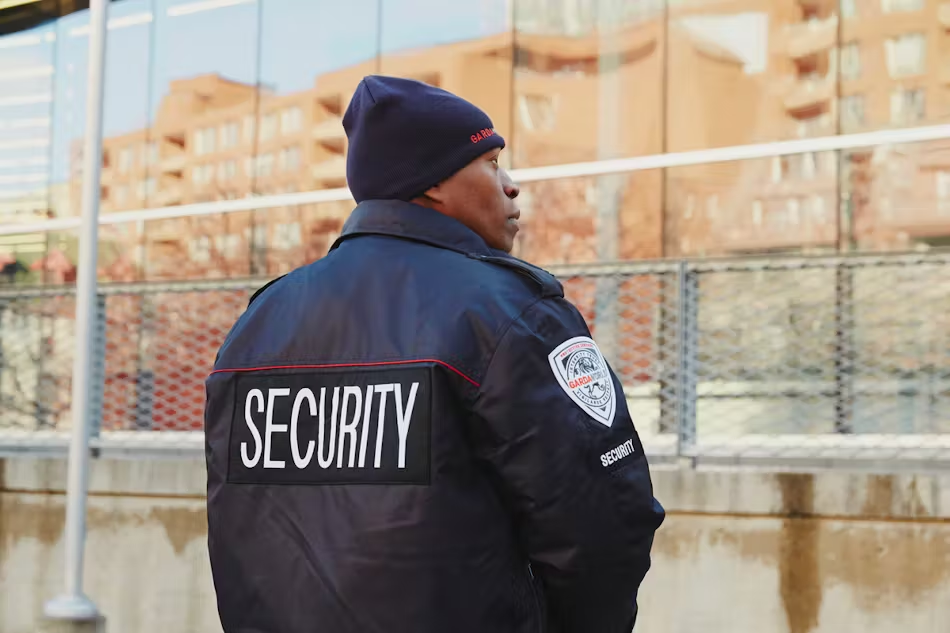The increasing demand for private security may be more significant than ever, as public police departments face challenges related to recruitment, retirements, high operational costs, and rising anti-police sentiment.
Jonah Nathan, Vice President of Houston-based Ranger Guard, highlights this growing trend: “More people are seeking security services, not just for protection, but to create a welcoming atmosphere where people feel comfortable.”
Despite advancements in artificial intelligence and robotics, the demand for human security officers remains strong, especially with rising violence in many U.S. cities. Data from SecurityInfoWatch supports the idea that private security is becoming increasingly essential as public law enforcement struggles.
Steve Amitay, Executive Director of the National Association of Security Companies (NASCO), points out that unrest in the U.S. has created new security needs. From retail theft to organized crime and political extremism, the need for private security has expanded. “Ten years ago, who would have thought security guards would be required at polling stations or school board meetings?” Amitay notes.
The growth of the private security industry reflects these changes. A Statista study shows that in 2019, there were nearly 700,000 police officers in the U.S., while outsourced security guards numbered around 830,000. The private sector is growing at a faster rate than public law enforcement, with a compound growth rate of only 0.24% for the police between 2004 and 2019, compared to higher growth in private security.
According to Robert H. Perry & Associates, the contract security market is valued at $34 billion in North America, with the majority—$30 billion—generated in the U.S. A significant portion of this growth comes from converting in-house security functions to outsourced services, with more companies exploring the benefits of private security firms. Larger security companies have also seen growth in revenue, driven by increased demand and higher billing rates. Smaller firms, while focusing less on technology, have also benefited as clients seek more human security presence.
Steve Somers, Regional Vice President at GardaWorld, notes that even as public police forces face resource challenges, private security companies are stepping up to meet growing demands. GardaWorld, like many private firms, has adapted by offering a range of services beyond traditional security guards, including risk management and surveillance.
However, the private security sector faces its own challenges. Amitay explains that the industry is grappling with labor shortages and regulatory barriers. In many states, licensing for security officers is complex and time-consuming, with new hires often waiting months for approval. Efforts are underway to streamline this process, allowing security officers to begin work while their applications are being processed.
Retention remains critical in the high-turnover security industry, and companies are investing heavily in recruitment and hiring incentives. Liability is another key issue, as security officers are often reluctant to engage directly with suspects unless lives are in immediate danger.
Ranger Guard, for example, has found success by diversifying its services. In booming areas of Texas, construction sites have become a target for theft, and the company has developed specific programs to protect these properties. Nathan explains that a visible security presence can serve as a deterrent, encouraging criminals to move on to less-protected areas.
The security industry is also embracing technology to enhance operations. Companies like Allied Universal are integrating AI tools to optimize staffing and improve efficiency. While the use of humanoid robots remains limited, advanced analytics are helping managers determine where human officers are needed most.
Four global leaders in the industry—Allied Universal, GardaWorld, Securitas, and Prosegur—are well-positioned to continue growing. Major acquisitions, such as Allied Universal’s purchase of G4S and Securitas’ acquisition of Stanley Black & Decker’s systems integration division, have solidified their market dominance.
Steve Somers emphasizes the importance of public-private partnerships, noting that many former law enforcement officers have transitioned to the private sector, helping to strengthen relationships between the two. GardaWorld, for example, provides a wide range of services, from mobile security to risk management, to assist both private clients and public law enforcement in managing risk.
As the landscape of security continues to evolve, the private sector’s role in safeguarding businesses and communities is becoming increasingly vital. With rising crime rates and limited police resources, private security firms are stepping in to fill the gap, offering customized solutions that go beyond traditional security roles.
In an industry where the presence of a security officer can make all the difference, private security firms are poised to play an even greater role in ensuring safety and security across the U.S.
